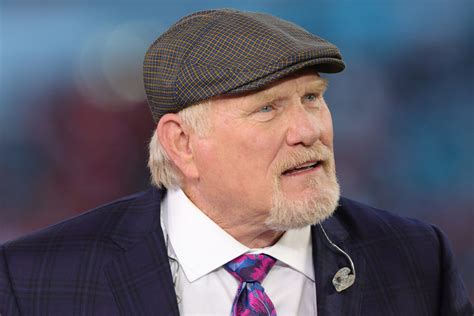
Baltimore Ravens quarterback Lamar Jackson missed out on a $750,000 workout bonus after failing to meet the attendance requirement for the team’s voluntary offseason workouts. The missed bonus underscores the ongoing dynamic between Jackson and the Ravens organization, particularly concerning the structure of his contract and his approach to offseason training.
Lamar Jackson, the Ravens’ star quarterback, forfeited a $750,000 bonus tied to his participation in the team’s voluntary offseason workouts. The bonus was a component of the five-year, $260 million contract extension Jackson signed with the Ravens in April 2023. According to reports, Jackson did not meet the required attendance threshold to trigger the bonus, highlighting a potential disconnect between the quarterback’s training preferences and the team’s expectations.
The $750,000 workout bonus was structured as part of Jackson’s contract to incentivize his participation in the team’s offseason programs. These programs are designed to facilitate team bonding, install new offensive schemes, and allow players to maintain their physical conditioning under the supervision of team trainers and coaches. While the workouts are voluntary under NFL collective bargaining agreements, teams often use financial incentives to encourage player participation.
Jackson’s decision not to attend the workouts and, therefore, forego the bonus, raises questions about his training regimen and his relationship with the Ravens’ coaching staff. It’s not uncommon for quarterbacks to have their own preferred training methods and personal coaches, particularly during the offseason. However, the Ravens likely hoped that Jackson would engage more actively with the team’s organized programs, especially after signing a lucrative long-term contract.
The situation also sheds light on the broader issue of voluntary vs. mandatory offseason activities in the NFL. While players have the right to choose whether or not to participate in voluntary workouts, teams often view these sessions as crucial for building team chemistry and developing a cohesive strategy for the upcoming season. The use of bonuses, like the one in Jackson’s contract, is a common tool to bridge this gap.
“These workouts are voluntary, but we value the opportunity for our players to come together, learn, and improve,” said Ravens Head Coach John Harbaugh in a press conference. While Harbaugh did not specifically address Jackson’s situation, his comments reflect the team’s overall philosophy regarding offseason training.
The lost bonus is unlikely to have a significant financial impact on Jackson, given his substantial contract. However, it does serve as a reminder of the ongoing negotiations and compromises that shape player-team relationships in the NFL. It also prompts a discussion about the balance between individual training preferences and the collective benefits of team-organized activities.
Deeper Dive into Jackson’s Contract and Workout Bonuses
Lamar Jackson’s contract extension with the Baltimore Ravens was one of the most closely watched negotiations in recent NFL history. The five-year, $260 million deal made him one of the highest-paid players in the league, and it included significant guaranteed money and various performance-based incentives. Workout bonuses are a relatively common feature in NFL contracts, particularly for quarterbacks, as teams seek to ensure that their star players are actively involved in offseason preparations.
The specific details of Jackson’s workout bonus are not fully public, but it likely required him to attend a certain percentage of the team’s organized training activities (OTAs) and other voluntary workouts. These workouts typically involve on-field drills, classroom sessions, and strength and conditioning exercises. The Ravens coaching staff uses these sessions to evaluate players, install new plays, and develop a sense of camaraderie within the team.
The decision to include a workout bonus in Jackson’s contract reflects the Ravens’ desire to have their franchise quarterback fully integrated into the team’s offseason program. While Jackson is known for his exceptional athleticism and natural talent, the Ravens likely believe that consistent participation in organized workouts will help him refine his skills and build a stronger rapport with his teammates.
Jackson’s Training Style and Offseason Approach
Lamar Jackson has often taken a unique approach to offseason training, sometimes opting for personalized training regimens rather than relying solely on the team’s organized workouts. This approach has been a subject of discussion among analysts and fans, with some questioning whether it is the most effective way for him to prepare for the season.
Jackson has previously worked with private quarterback coaches and trainers who specialize in developing specific aspects of his game, such as his throwing mechanics and pocket presence. He has also emphasized the importance of maintaining his physical conditioning through individual workouts and drills.
While Jackson’s individual training methods may be effective for him, they do not necessarily align with the Ravens’ desire to have him actively involved in the team’s organized program. The Ravens believe that participation in these programs provides valuable opportunities for Jackson to work with his teammates, learn the team’s offensive system, and build a strong connection with the coaching staff.
The balance between individual training and team-organized activities is a delicate one for many NFL players. While individual workouts can help players focus on specific areas for improvement, team-organized programs offer a more comprehensive approach to training, with the added benefit of fostering team unity and cohesion.
Impact on Team Dynamics and Offseason Preparation
Lamar Jackson’s decision to forego the $750,000 workout bonus could potentially have implications for the Baltimore Ravens’ team dynamics and offseason preparation. While the Ravens coaching staff has publicly expressed their support for Jackson, his absence from the team’s voluntary workouts could create a sense of disconnect between him and his teammates.
Team chemistry is a crucial element of success in the NFL, and offseason workouts play a significant role in fostering this chemistry. When players spend time together in a structured environment, they have the opportunity to build relationships, learn each other’s strengths and weaknesses, and develop a shared sense of purpose. Jackson’s absence from these workouts could potentially hinder the team’s ability to develop a strong sense of unity and cohesion.
Moreover, the Ravens coaching staff relies on offseason workouts to evaluate players, install new plays, and refine the team’s overall strategy. Jackson’s participation in these workouts would provide valuable opportunities for him to work with his coaches and teammates, gain a deeper understanding of the team’s offensive system, and contribute to the development of the team’s game plan.
However, it is also important to consider that Jackson is an experienced player who has a proven track record of success in the NFL. He has demonstrated his ability to perform at a high level even without participating extensively in the team’s voluntary workouts. It is possible that Jackson has developed a training regimen that works effectively for him, and that he is confident in his ability to prepare for the season without relying solely on the team’s organized program.
Historical Context: Workout Bonuses in NFL Contracts
Workout bonuses have become increasingly common in NFL contracts over the past decade, as teams seek to incentivize player participation in voluntary offseason programs. These bonuses are typically structured as performance-based incentives, meaning that players must meet certain attendance or performance thresholds to earn the bonus money.
The use of workout bonuses reflects the growing emphasis on offseason training and preparation in the NFL. Teams recognize that the offseason provides a valuable opportunity for players to improve their skills, build team chemistry, and develop a cohesive strategy for the upcoming season. By offering financial incentives for participation in voluntary workouts, teams hope to encourage players to take advantage of these opportunities.
However, the use of workout bonuses has also been criticized by some players and analysts, who argue that they can create unnecessary pressure on players to participate in activities that are supposed to be voluntary. Some players may feel obligated to attend workouts even if they believe that their time would be better spent focusing on other aspects of their training or personal lives.
The NFL Players Association (NFLPA) has also expressed concerns about the use of workout bonuses, arguing that they can undermine the voluntary nature of offseason programs. The NFLPA has advocated for changes to the collective bargaining agreement that would limit the use of workout bonuses and give players more control over their offseason training schedules.
Broader Implications for Player-Team Relationships
The situation involving Lamar Jackson and his workout bonus highlights the complex dynamics that exist between players and teams in the NFL. While players are highly compensated for their services, they also face significant pressure to meet the expectations of their teams, both on and off the field.
The use of financial incentives, such as workout bonuses, is just one example of how teams attempt to influence player behavior. Teams also exert control over players through contract negotiations, performance evaluations, and disciplinary actions.
Players, on the other hand, have the right to negotiate their contracts, choose their own training methods, and express their opinions on team-related matters. However, they must also be mindful of the potential consequences of their actions, as teams have the power to trade, release, or suspend players who do not meet their expectations.
The relationship between players and teams is often a delicate balance of power, with both sides seeking to maximize their own interests. The situation involving Lamar Jackson and his workout bonus serves as a reminder of the ongoing negotiations and compromises that shape these relationships in the NFL.
Expert Analysis and Commentary
“Lamar Jackson is a unique player with a unique skillset,” said NFL analyst Brian Billick. “He has shown that he can be successful even without participating extensively in the team’s voluntary workouts. However, the Ravens likely want him to be more involved in the team’s offseason program, as it provides valuable opportunities for him to work with his coaches and teammates.”
“The use of workout bonuses is a common tool that teams use to incentivize player participation in voluntary workouts,” said NFL agent Drew Rosenhaus. “However, it is important for players to carefully consider the terms of these bonuses before signing their contracts. Some players may feel that the financial reward is not worth the time and effort required to meet the attendance or performance thresholds.”
“The NFLPA has long advocated for changes to the collective bargaining agreement that would limit the use of workout bonuses,” said NFLPA spokesperson George Atallah. “We believe that players should have more control over their offseason training schedules, and that they should not be pressured to participate in activities that are supposed to be voluntary.”
Conclusion: A Matter of Perspective and Priorities
Lamar Jackson missing out on his $750,000 workout bonus is a nuanced situation that reflects the complexities of player-team relationships in the NFL. While the Ravens may have hoped for greater participation in voluntary workouts, Jackson’s individual training approach has proven successful. The incident underscores the ongoing debate regarding the balance between team expectations, individual training preferences, and the true meaning of “voluntary” activities in professional sports. Ultimately, it is a matter of perspective and priorities for both the player and the organization. The focus now shifts to how this situation will impact team chemistry and on-field performance in the upcoming season.
Frequently Asked Questions (FAQ)
1. Why did Lamar Jackson miss out on the $750,000 workout bonus?
Lamar Jackson missed out on the bonus because he did not meet the required attendance threshold for the Baltimore Ravens’ voluntary offseason workouts, as stipulated in his contract.
2. Are NFL offseason workouts mandatory?
No, NFL offseason workouts are generally voluntary, according to the collective bargaining agreement between the NFL and the NFL Players Association (NFLPA). However, teams often incentivize participation through workout bonuses.
3. What is the purpose of workout bonuses in NFL contracts?
Workout bonuses are designed to encourage players to participate in team-organized offseason training activities. Teams believe these activities are important for building team chemistry, installing new offensive schemes, and maintaining physical conditioning.
4. Will this affect Lamar Jackson’s overall salary?
No, the missed workout bonus does not affect Jackson’s base salary or other guaranteed money in his contract. It only means he did not receive the additional $750,000 incentive.
5. How common are workout bonuses in NFL contracts?
Workout bonuses are relatively common, especially for quarterbacks and other key players. They are used as a tool to encourage participation in voluntary offseason programs.



![Breakfast Battles: [Fast Food Chain Name]’s Menu Drama](https://infoduniaku.com/wp-content/uploads/2025/06/unnamed-file-493-150x150.jpg)





